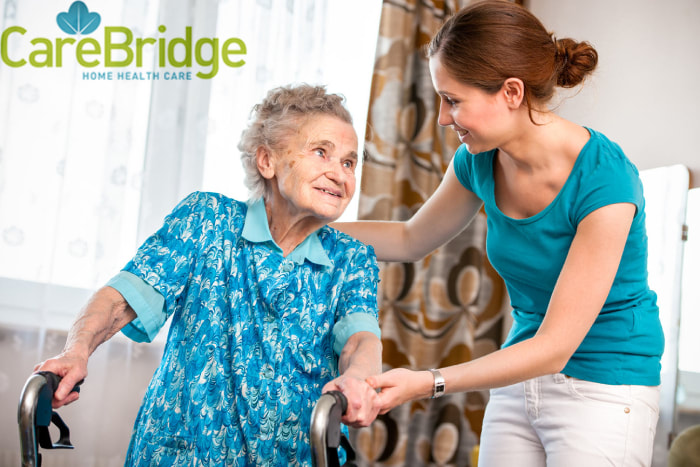Home Health Care in Monmouth County During COVID-19 Crisis
Two important keywords have surfaced during the COVID-19 pandemic – Home and Health. The country’s home health care services and providers are preparing to see a rise in demand for their services as more elderly patients and those with underlying health conditions stay home to minimize their exposure risk to COVID-19.
The caregivers at home health care agencies in Monmouth County, improve and maintain health, help seniors manage serious illnesses, and provide therapy that rehabilitates and prevents injuries. To continue to serve in-home care, personal aides, nurses, therapists, and attendants are taking extra safety precautions to mitigate the risks of transmission and keep their patients as safe as possible. The biggest concern for a lot of patients is not being able to access the outside world and staying isolated. Where possible, CareBridge is cutting down on in-person visits and opting for telecare, such as video and phone calls. Ultimately, in-home health care is on the front line of the crisis, just like other health care workers. One great thing about home health care in Monmouth County and CareBridge Home Health Care is that we are inherently community-based care. What to ask your Caregiver? 1. What additional precautions are you taking? Heightened infection control is being adopted nationwide, so visits are likely to involve more health screenings, steps, and personal protective equipment than normal. Patients with underlying conditions may be monitored more thoroughly. Some health care agencies in Monmouth County are posting their action plans online or sharing them with patients via information brochures or phone calls. 2. What care is necessary right now? It is recommended that non-essential health care appointments and procedures be canceled during the pandemic, to practice physical distancing. Ask if there are visits you can condense or cut for now. It can reduce your exposure risk and also ensure that health care providers are available for those who are in need. 3. Is telecare available? Video calls, phone calls, health apps, emails, and other technologies may be available to reduce person-to-person contact. 4. What is my care plan? Routines may change during a pandemic, which means your health care plans too. If any dietary or lifestyle changes are being made, build a plan with your aide and a family member, if possible. Go through COVID-19 guidelines, check your medicine and household supplies, work out how you are going to stay virtually connected with your loved ones, and enlist emergency contacts and a support network. Home health care and home care services are crucial to helping medically fragile patients and the elderly to maintain their community independence. Visit carebridge.care to tailor your personal health care services as per your specific care needs or call them at 732-722-7800.





